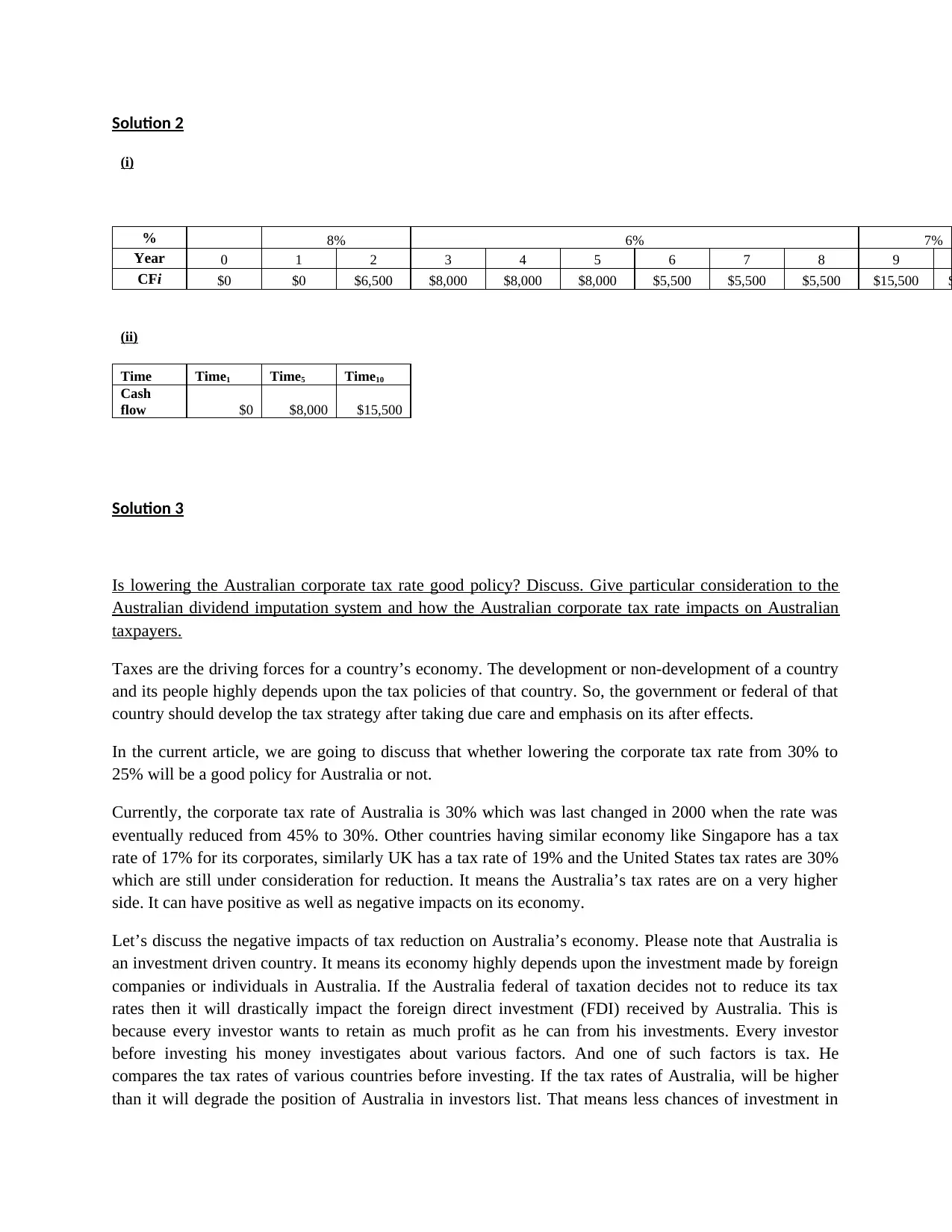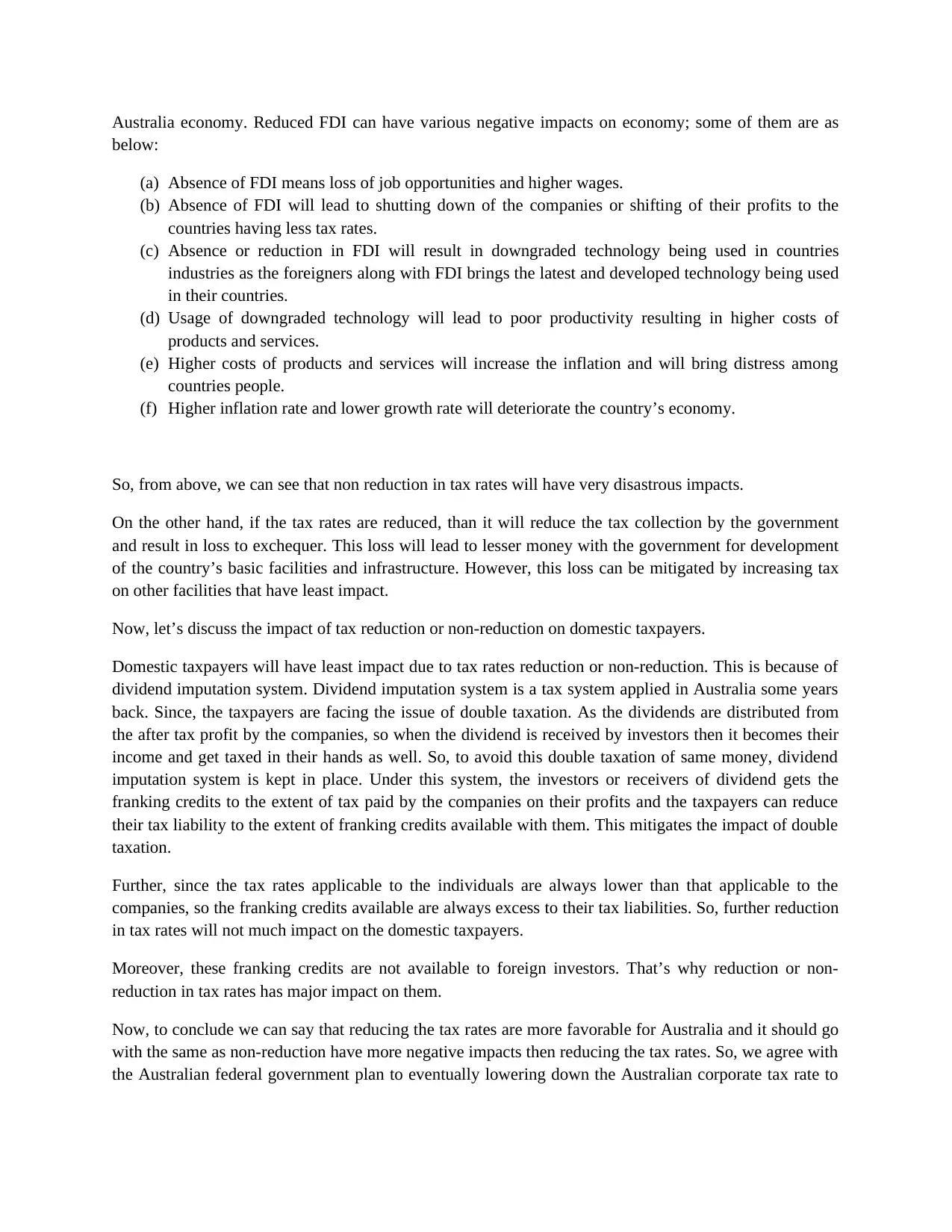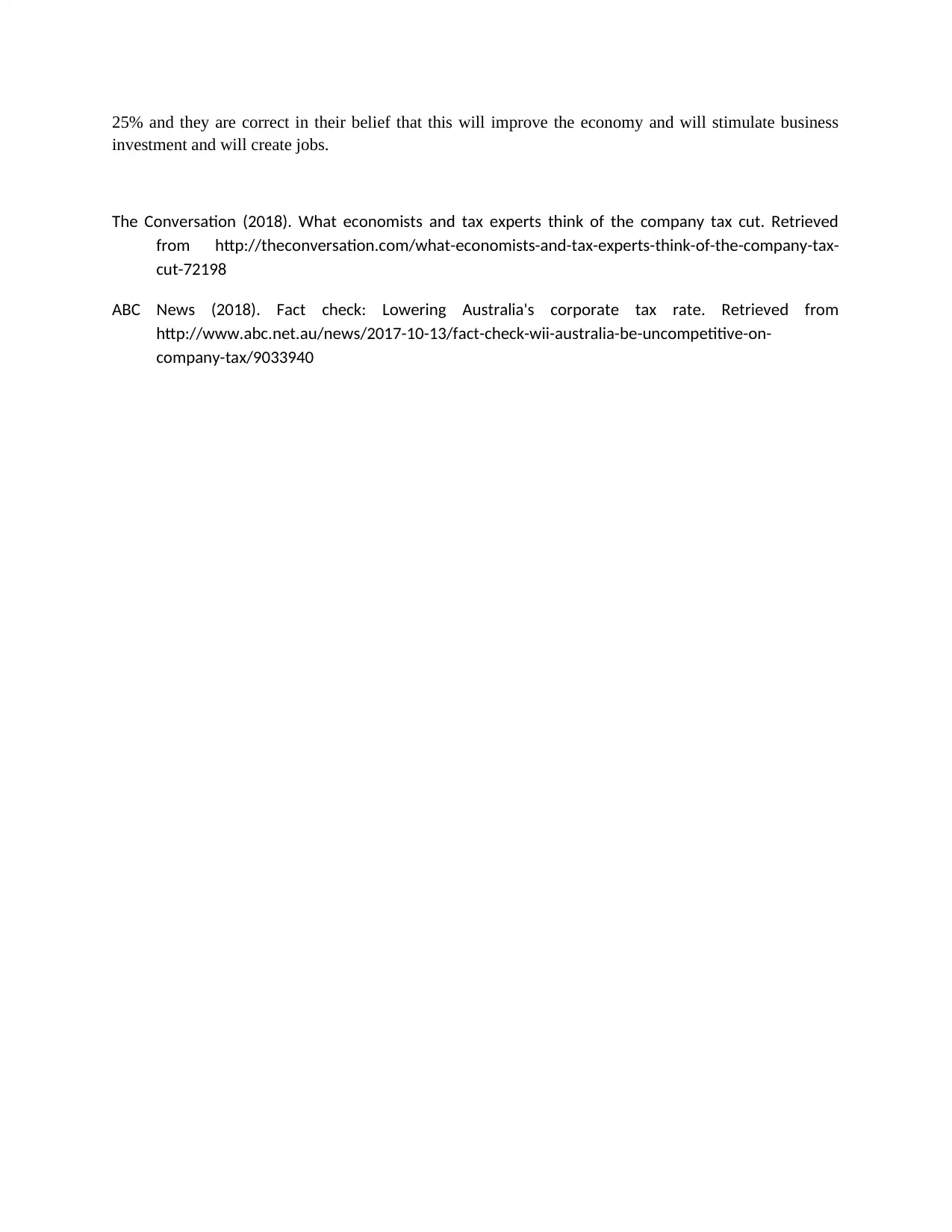Lowering Australian Corporate Tax Rate: Good Policy or Not?
VerifiedAdded on 2023/06/15
|3
|1058
|454
AI Summary
This article discusses the impact of lowering the Australian corporate tax rate from 30% to 25% on the economy, taxpayers, and foreign investors. It also considers the Australian dividend imputation system. The article argues that reducing the tax rates is more favorable for Australia as non-reduction has more negative impacts than reducing the tax rates. The article supports the Australian federal government's plan to eventually lower the Australian corporate tax rate to 25% as it will improve the economy, stimulate business investment, and create jobs.
Contribute Materials
Your contribution can guide someone’s learning journey. Share your
documents today.
1 out of 3








![[object Object]](/_next/static/media/star-bottom.7253800d.svg)